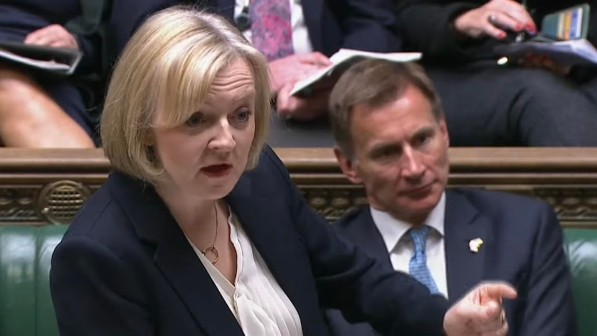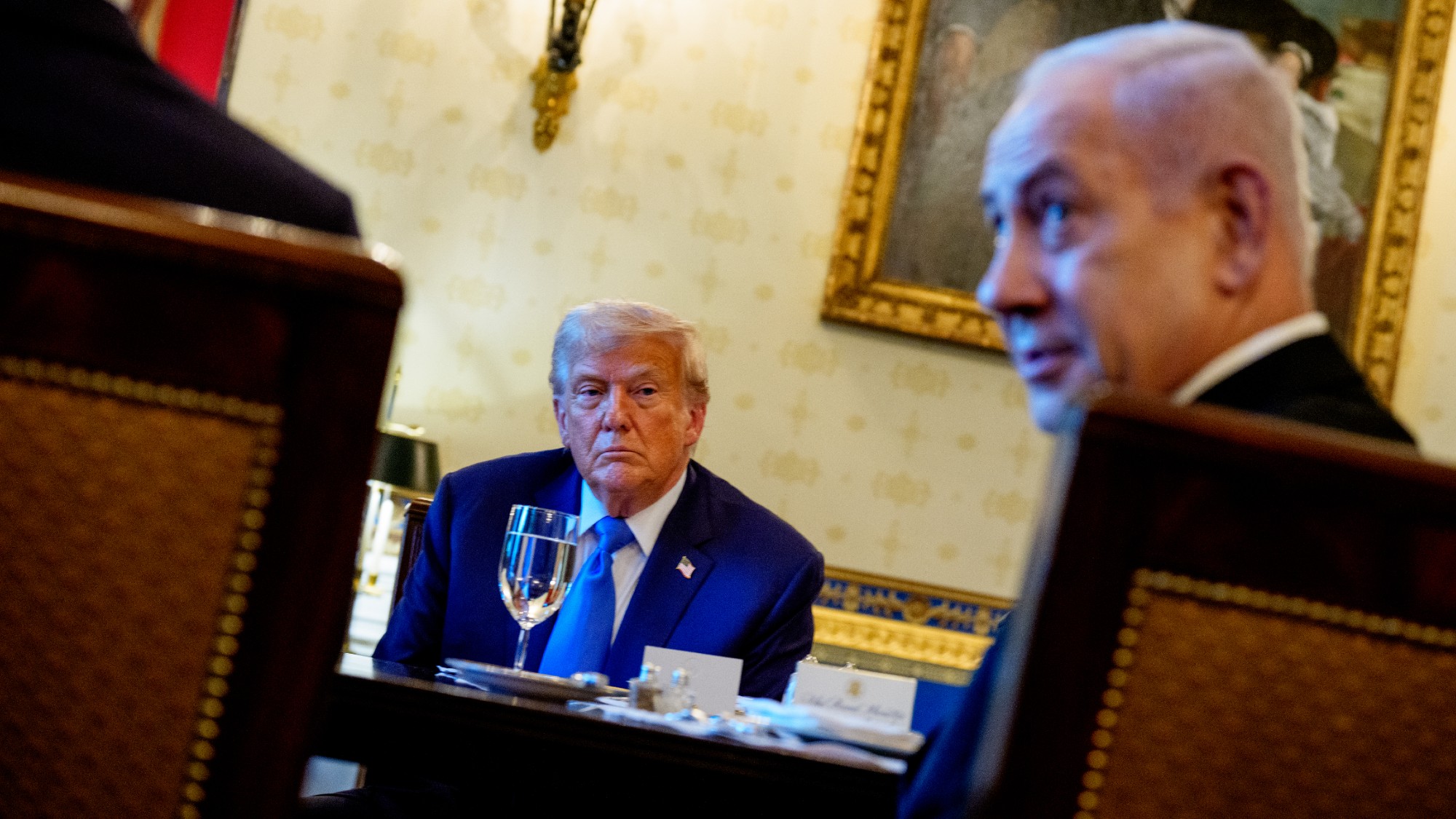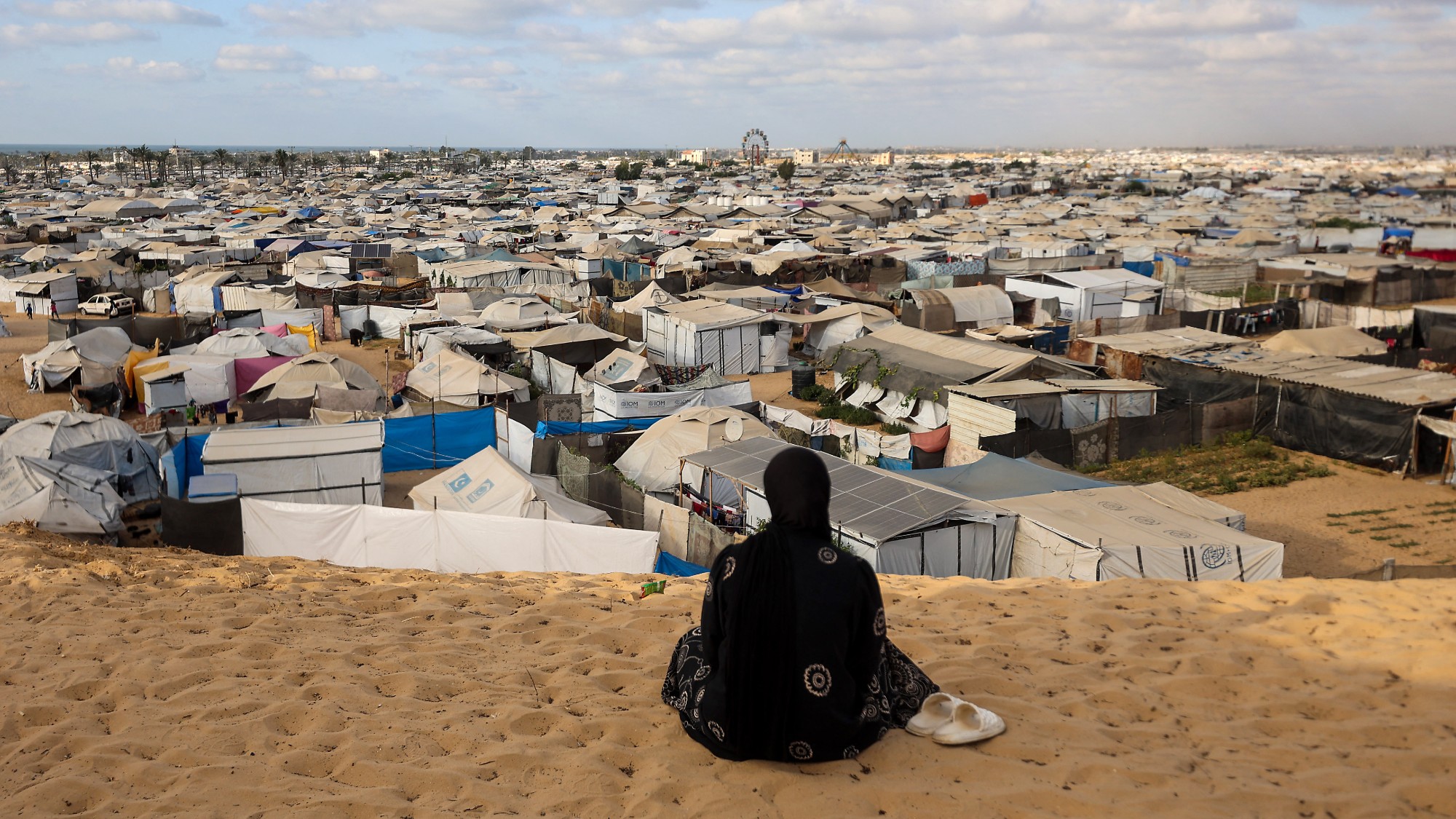Love thy neighbour: why chancellors and prime ministers often fall out
No. 10 and No. 11 Downing Street have often been locked in bitter power struggles

A free daily email with the biggest news stories of the day – and the best features from TheWeek.com
You are now subscribed
Your newsletter sign-up was successful
Jeremy Hunt has been described as “the most powerful man in government” and “de facto prime minister” following his surprise appointment last week.
After the new chancellor axed most of Liz Truss’s mini-budget, the ever-influential power-dynamic between No. 10 and No. 11 Downing Street is back under the spotlight.
While Hunt’s position is seen as exceptionally strong, Truss has shown her power by already sacking one chancellor during her short reign. Prime ministers and chancellors are “rarely the friendliest of neighbours”, said The Guardian, as there is a “history of rivalry”, between them.
The Week
Escape your echo chamber. Get the facts behind the news, plus analysis from multiple perspectives.

Sign up for The Week's Free Newsletters
From our morning news briefing to a weekly Good News Newsletter, get the best of The Week delivered directly to your inbox.
From our morning news briefing to a weekly Good News Newsletter, get the best of The Week delivered directly to your inbox.
Who really has the power?
There have been many “power struggles between No. 10 and the Treasury”, agreed policy experts Dave Richards, Diane Coyle, Martin Smith and Sam Warner for LSE Blogs.
The authors recalled how, in 1964, the new Labour PM Harold Wilson created the “ill-fated” Department for Economic Affairs with responsibility for driving economic policy, in the hope of “clipping the wings of the Treasury”.
In 1989, Margaret Thatcher and her chancellor, Nigel Lawson, were at “loggerheads” over whether to join the exchange rate mechanism (ERM), recalled The Guardian. The chancellor demanded that the PM sack her own economic adviser, Sir Alan Walters. When she refused, Lawson quit, which unleashed a series of events that ultimately ended Thatcher’s premiership.
With Tony Blair and his chancellor Gordon Brown there was “more than a decade of festering resentment��� between the Treasury and No. 10, recalled Jon Davies, co-author of a book about the Blair years, in The Telegraph.
A free daily email with the biggest news stories of the day – and the best features from TheWeek.com
So “jealous of his perceived terrain” was Brown, said The Telegraph, that in 2000, when the PM announced on TV that Britain would reach the European average for health spending, Brown stormed into No. 10, shouting: “You’ve stolen my f***ing Budget!”
Do they need to be friends?
After Brown finally took over in No. 10 in 2007 he often clashed with his own chancellor, Alistair Darling. Perhaps mindful of the political damage that such tensions caused, David Cameron and George Osborne, who were already friends and godfathers to each other’s children as they settled into No. 10 and No. 11 Downing Street, formed a comparatively positive relationship.
Osborne was Cameron’s “closest ally” in government, said the BBC, and served as his chancellor for the six years Cameron was prime minister – from 2010 to 2016. However, Cameron’s successor, Theresa May, reverted to form and endured a “tense” relationship with her financial colleague, Philip Hammond, said The New Statesman.
During the Covid pandemic, Rishi Sunak’s furlough programme, made the then-chancellor the most popular member of the government – “a status ‘Dishy Rishi’ burnished with slick social media messages that stressed his own brand more than the government’s”, said AP. His Eat Out to Help Out policy also saw Sunak take “centre stage” in 2020, noted the Daily Express.
Ultimately, it was said that Sunak “wielded the dagger” that knifed Boris Johnson in the back and brought about his departure from Downing Street, said The Independent, as another ruined PM/chancellor relationship changed everything.
Why does it matter?
The connection between PM and chancellor is “probably the most important, and potentially the most problematic, of all ministerial relationships”, wrote history professor Richard Toye on the Exeter Blog.
Domestic economic management is “the most important factor in determining electoral success”, wrote Toye. Therefore, the chancellor becomes “a unique point of strength or weakness” for a prime minister. If the relationship goes well and the economy thrives, the PM can feel “fairly secure in 10 Downing Street” but if it goes wrong the consequences can “rock a government to its foundations”.
Getting the balance right is easier said than done for the MP in No. 11. A problem for chancellors is that “if they get too close to the prime minister, then like George Osborne, they become tarnished when the PM is out of favour and the political parties look for a ‘clean break’,” said Tax Journal.
“If, however, chancellors fall out with prime ministers,” then “their careers tend to be cut short by the prime minister”.
Chas Newkey-Burden has been part of The Week Digital team for more than a decade and a journalist for 25 years, starting out on the irreverent football weekly 90 Minutes, before moving to lifestyle magazines Loaded and Attitude. He was a columnist for The Big Issue and landed a world exclusive with David Beckham that became the weekly magazine’s bestselling issue. He now writes regularly for The Guardian, The Telegraph, The Independent, Metro, FourFourTwo and the i new site. He is also the author of a number of non-fiction books.
-
 A dreamy long weekend on the Amalfi Coast
A dreamy long weekend on the Amalfi CoastThe Week Recommends History, pasta, scenic views – this sun-drenched stretch of Italy’s southern coast has it all
-
 Can foster care overhaul stop ‘exodus’ of carers?
Can foster care overhaul stop ‘exodus’ of carers?Today’s Big Question Government announces plans to modernise ‘broken’ system and recruit more carers, but fostering remains unevenly paid and highly stressful
-
 6 exquisite homes with vast acreage
6 exquisite homes with vast acreageFeature Featuring an off-the-grid contemporary home in New Mexico and lakefront farmhouse in Massachusetts
-
 How corrupt is the UK?
How corrupt is the UK?The Explainer Decline in standards ‘risks becoming a defining feature of our political culture’ as Britain falls to lowest ever score on global index
-
 Reforming the House of Lords
Reforming the House of LordsThe Explainer Keir Starmer’s government regards reform of the House of Lords as ‘long overdue and essential’
-
 The Board of Peace: Donald Trump’s ‘alternative to the UN’
The Board of Peace: Donald Trump’s ‘alternative to the UN’The Explainer Body set up to oversee reconstruction of Gaza could have broader mandate to mediate other conflicts and create a ‘US-dominated alternative to the UN’
-
 The high street: Britain’s next political battleground?
The high street: Britain’s next political battleground?In the Spotlight Mass closure of shops and influx of organised crime are fuelling voter anger, and offer an opening for Reform UK
-
 Is a Reform-Tory pact becoming more likely?
Is a Reform-Tory pact becoming more likely?Today’s Big Question Nigel Farage’s party is ahead in the polls but still falls well short of a Commons majority, while Conservatives are still losing MPs to Reform
-
 Taking the low road: why the SNP is still standing strong
Taking the low road: why the SNP is still standing strongTalking Point Party is on track for a fifth consecutive victory in May’s Holyrood election, despite controversies and plummeting support
-
 Gaza peace deal: why did Trump succeed where Biden failed?
Gaza peace deal: why did Trump succeed where Biden failed?Today's Big Question As the first stage of a ceasefire begins, Trump’s unique ‘just-get-it-done’ attitude may have proven pivotal to negotiations
-
 Five key questions about the Gaza peace deal
Five key questions about the Gaza peace dealThe Explainer Many ‘unresolved hurdles’ remain before Donald Trump’s 20-point plan can get the go-ahead